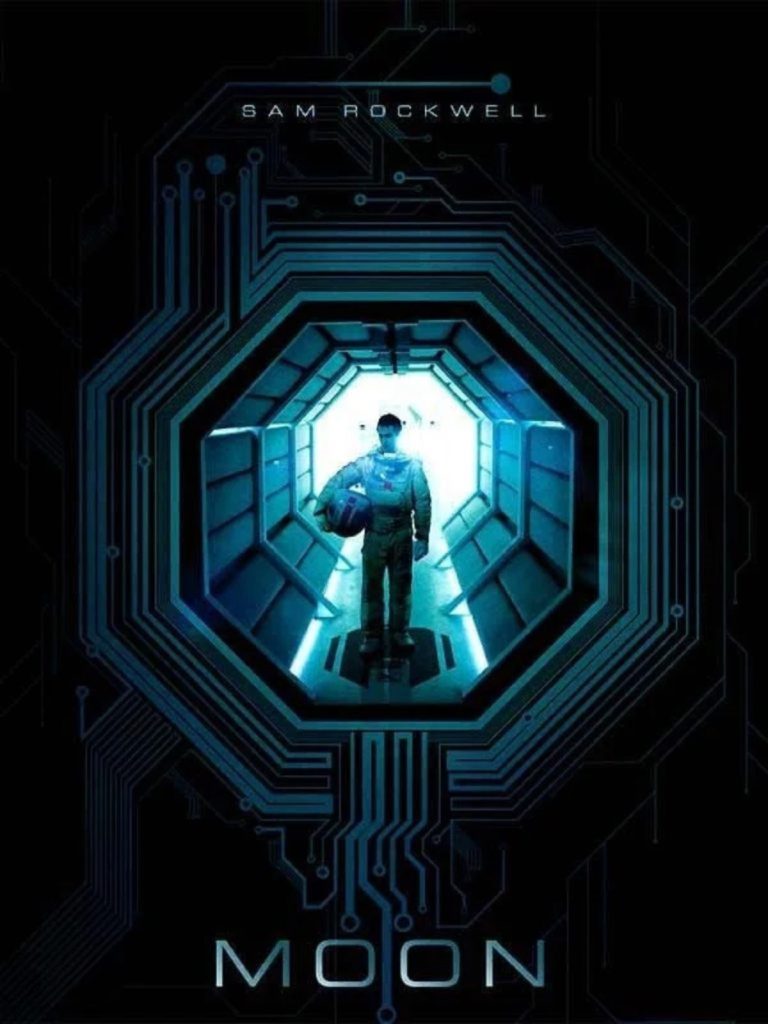Every so often, a film appears that quietly reshapes its genre, not with explosions and spectacle, but with a story that lingers long after the credits roll. In 2009, Duncan Jones – son of the iconic David Bowie – delivered exactly that with Moon, his feature debut. With just a handful of actors, a sparse lunar base, and a budget of around $5 million, Jones crafted an experience that felt both intimate and vast.
The plot follows Sam Bell, played with astonishing intensity by Sam Rockwell, who is nearing the end of his three-year shift mining helium-3 on the far side of the Moon. Alone except for GERTY, a soft-spoken artificial intelligence, Sam is looking forward to going home to his wife and daughter. But then, the hallucinations begin. A crash, a recovery, and a shocking discovery that makes him question everything he thought he knew about his mission—and himself.
It’s the kind of premise that thrives on atmosphere, tension and performance rather than spectacle. Watching it feels a bit like stepping into an old paperback from your dad’s bookshelf, the kind with creased pages and ideas that keep you awake at night.
Crafted in the spirit of sci-fi classics

Jones co-wrote the screenplay with Nathan Parker and, rather than drowning the film in CGI, leaned on practical effects and model work. The result is a visual style that calls back to the golden age of late 70s and early 80s science fiction: Alien, Outland, Silent Running. There’s grit on the walls, dust on the suits, and a sense that the Moon is not just a set piece, but a character in its own right.
Beyond aesthetics, the film’s concept rests on genuine scientific speculation. NASA has explored the idea of using lunar materials for construction, including experiments with so-called “moon concrete.” That thread of real-world science grounds the film, giving its speculative ideas a sharp edge of plausibility.
Rockwell’s performance is the heart of it all. Often acting opposite no one but himself, he delivers a portrait of isolation and unraveling identity that critics from The Times to The New York Times hailed as both poignant and technically dazzling.
Recognition that crossed borders
Despite earning less than $10 million at the global box office, Moon carved out an enduring reputation. With a 90% Rotten Tomatoes score, it quickly became a cult favourite and collected an impressive shelf of awards, including the BAFTA for Outstanding Debut and the prestigious Hugo Award for Best Dramatic Presentation.
Hollywood Reporter described it as a “tightly woven sci-fi thriller,” while The Times praised its “thoughtful direction” and Rockwell’s deeply moving turn. Over the years, outlets like Digital Spy have placed it among the finest science fiction films of the 21st century, and it’s not hard to see why.
Where to watch it now
If you’ve somehow missed this gem—or fancy revisiting it with fresh eyes—it’s now available on HBO Max. And while there are plenty of flashy space adventures out there, few films capture the loneliness of space, the fragility of identity, and the haunting question of what it means to be human quite like this one.
Pop the kettle on, dim the lights, and settle in. Because Moon isn’t just a film to watch—it’s an experience to absorb. And once you’ve landed, you’ll find it hard to shake off its quiet, lunar spell.


